Rome (Italy). On 28 December 2022, on the 400th anniversary of the death of St. Francis de Sales, the Apostolic Letter was published “Totus amoris est”, “Everything belongs to love”.
“In these his words, we can gather the spiritual heritage left by St. Francis de Sales, who died four centuries ago, on 28 December 1622, in Lyon”, explains Pope Francis, who begins the Letter by describing the circumstances of the death of the Holy Bishop of Geneva, who arrived in Lyon for a diplomatic commitment, in his early fifties, and in poor health, “for the pure spirit of service”.
Staying with the Visitandines, “in the gardener’s house so as not to cause too much trouble,” he never misses an opportunity to carry out his passionate ministry: “confessions, conversations, conferences, sermons, and the last, inevitable letters of spiritual friendship” characterizing to the end a lifestyle “full of God”, which comes from the certainty that God is in the human heart:
“It is the synthesis of his thought. The experience of God is evidence of the human heart. It is not a mental construct, rather it is a recognition full of amazement and gratitude, consequent to the manifestation of God. It is in the heart and through the heart that the subtle and intense unitary process takes place by virtue of which we recognize God and, together, in itself, our origin and depth, our fulfilment, in the call to love.”
“Refuse nothing, desire nothing” is another well-known expression that he leaves to the Visitandines, bearing witness in his last Christmas, to the profound humanity that comes from true contemplation of the incarnate Son. “At the school of the incarnation, therefore, he had learned to read history and live it with confidence.”
“The criterion of love” is the basis for the discernment of desire and also for a correct relationship between contemplation and action. “Here is the real question that overcomes any useless rigidity or self-absorption; ask yourself at all times, in every choice, in every circumstance of life where the greatest love is found. It is no coincidence that St. Francis de Sales was called by St. John Paul II “Doctor of divine love”, not only for having written a powerful Treatise on it, but above all because he was a witness to it”.
In outlining the main stages in the life of the Holy Doctor of the Church from his birth on 21 August 1567, in the castle of Sales near Thorens, of François de Nouvelles, Lord of Boisy, and of Françoise de Sionnaz, Pope Francis describes the experiences which marked his vocation and the theological setting based on the dimensions of caring for the spiritual life with prayer and openness to the Holy Spirit, and ecclesial life. Francis de Sales experiences the great passage between the sixteenth and seventeenth centuries, and “is an interpreter of the change of era and guide of souls in a time that thirsts for God in a new way.”
Salesian optimism “that left his lasting mark on the history of spirituality for successive flowerings, as in the case of Don Bosco two centuries later”; and charity, “which does everything for his children,” are two other important traits of his spirituality highlighted by Pope Francis, in addition to the flexibility and capacity for vision, which he finds illuminating as a legacy for the current era.
The relationship with God, who gently draws to Himself, leaving us free to consent or to resist, and true devotion are, for the Holy Father, two crucial aspects “that ask to be understood and re-launched even today.” Also linked to devotion is the conciliar theme of the universal call to holiness. For Francis de Sales, devotion must be exercised by all, regardless of profession or social or life condition, and all are called on the path of perfection, “each in their own way.”
From a Salesian point of view, however, the Christian life should not be “confused with an easy escape or an intimate retreat, much less with a sad and gray obedience,” but lived in “ecstasy”, finding the profound source of joy in love of God and openness to others.
“May the fourth centenary of his birth into heaven help us to have a devout memory of him. Through his intercession, may the Lord pour out abundant gifts of the Spirit on the path of God’s holy faithful people.” This is the conclusion of this Apostolic Letter, a gift to be meditated upon, in particular for the Congregations and Groups inspired by Saint Francis de Sales.
As we read in the Identity Card of the Salesian Family (Art. n°7), Don Bosco chose him as patron “because he proposed, with his work and his writings, that Christian humanism and that expression of charity which corresponded so well to his intimate aspirations. It is a humanism that does not ignore human weakness, but is based on an unshakeable confidence in the intrinsic goodness of the individual who is loved by God and by Him called to Christian perfection in every state of life. This humanism is a constitutive element of the charismatic and spiritual experience of the Groups founded by Don Bosco and, as a precious inheritance, has been made their own by the other Groups which today are aggregated to the single Family”.






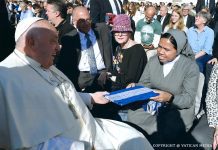
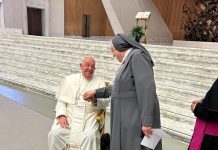

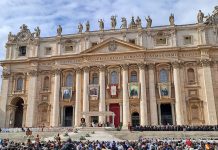
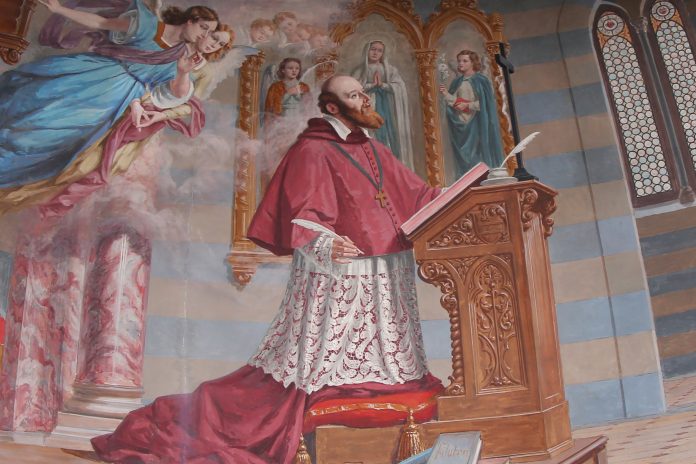








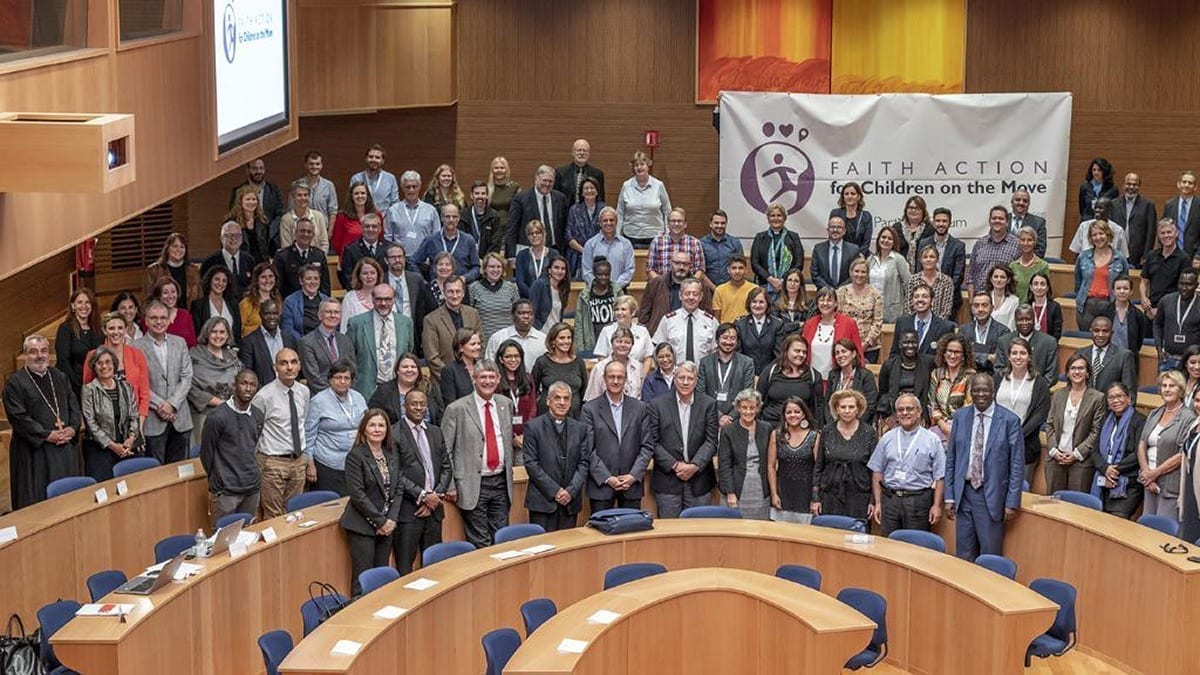

Que belleza de testimonio de San Francisco de Sales. Amar al projimo, confianza en Dios. Una Vida intesa abierto a la Accion del Esp. STO. Unido a la Iglesia. Nace de una fte comtemplacion a la Encarnacion
Auguri Feliz Navidad Sor Aida